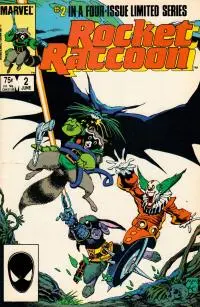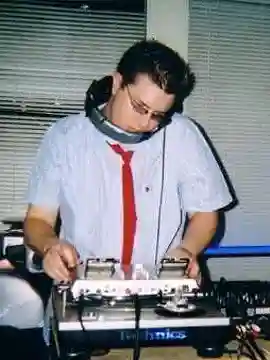Beautiful imperfection. It’s a term art critics have bandied about almost as long as there has been art to critique. The idea is that even in the most masterful works, it is the mistakes and shortcomings that give the piece its real character, and provide the truest insight into the creator. Maybe it’s because we admire perfection, but we understand flaws?
Adaptations are often derided for a lack of fidelity to the source material, as if every detail changed will be the film’s undoing. While totally misrepresenting another artist’s work is a shameful crime that occurs far too often, a religious devotion to the original is no salvation. A story that was written to be released over several printed volumes is going to have to change in order to work as a two-hour film. Watchmen was quite possibly the most exacting comic-to-screen translation ever seen, and even the story’s biggest fans dismissed it as a boring summer action movie with no spirit. It can be hard to hit that perfect sweet-spot between respecting and revering the source material, especially when you have decades of stories to comb through.
As I pointed out before, The Wolverine found a very effective solution to the problem. Instead of trying to directly adapt a particular story or even era of the character, they cherry-picked the best moments and themes from his most memorable tales and stitched them together to create a new story that still felt familiar to fans. It’s a lesson many superhero movies would do well to learn. Though it was made by a different studio, Guardians of the Galaxy took this principle and pushed it even further. While it isn’t strictly accurate, the film completely captures the essence of what makes opening a new comic book such a joy. Guardians is an example of what Marvel does best—creating a colorful world and fascinating characters to explore it with.
Before I go any further, be warned. Beyond I will be disclosing ALL THE SPOILERS.
The Guardians of the Galaxy don’t have quite as much history as Wolverine, but they’ve been all over the universe, traveled through time, and fought alien gods. Enough crazy shit happens in a Guardians comic every month to fill a bludgeon-grade sci-fi series omnibus. Deciding where to start must have been a daunting task. For the first Avengers film, you knew it had to be Loki. He was the reason the Avengers assembled in the first place. Even people who didn’t read comics knew this. The details of how, where and why they fought him might have changed, but it was still recognizable, like another variation on a classic fairytale.
The Guardians did not yet have a traditional epic good guy vs. bad guy tale, and the ones that came close were intricately tied to other franchises and massive crossover events. So they had to fabricate one from whole cloth. In the comics, almost none of the movie’s story happened, which makes it all the more impressive how well it works. A few events bear a striking similarity to a panel or two, but for the most part this is a brand-new Marvel cosmic adventure. The Guardians have never really been involved with the Infinity Gems, but it’s totally the kind of story they could be a part of, so there they are, continuity be damned.
It’s this casual relationship with the comic's continuity that makes Guardians more accessible to the uninitiated, but still acceptable to the hardcore fans. While many liberties were taken with the characters, I have not seen the angry nerd outpouring of disdain for every deviation from canon filling up internet comment sections, at least not with the volume that typically accompanies a new superhero movie. Which is odd, because people who take that shit way too seriously have a ton of reasons to flip out.
 For instance, Rocket totally knows what a raccoon is, because his name used to be Rocket Raccoon, when he was the rocket-skate wearing sheriff of a mental institution called Halfworld. But just having him ask that one question does more to show you what a strange and alien world you have entered than a billion dollars of CG. Although in his early years Drax was quite literal and simple-minded, by the time he joined the Guardians he had developed a sense of humor and a talent for sarcasm. But in a movie that already has two guys competing for comic relief and one guy who doesn’t really talk at all, you need a straight man, and you could use early Drax to hang a painting he was so straight. The subtlety of everything was lost on him, which allowed the jokes to make a bigger splash. Yondu was originally an alien archer from an alternate future instead of a redneck space pirate with a magical murder arrow that works while he whistles, but I think we can all agree that was a vast improvement. And finally, Peter Quill, aka Star-Lord, was never a thief, legendary or otherwise. He started off as more of space cop, but when a colony world was destroyed during one of his battles with a herald of Galactus, the Kree Empire held him responsible for the lives lost and he was sent to the Kyln, where he actually did time with Thanos himself, and only escaped when the prison was destroyed by an army invading from the universe next door. However, just because I was able to summarize it in two sentences doesn’t mean it’d be as simple to fit all that back-story onto the screen. By bothering as little as possible with backstory, and having our heroes meet and bond over escaping from the Kyln, Guardians achieves in thirty minutes what Marvel had previously spent five feature films setting up.
For instance, Rocket totally knows what a raccoon is, because his name used to be Rocket Raccoon, when he was the rocket-skate wearing sheriff of a mental institution called Halfworld. But just having him ask that one question does more to show you what a strange and alien world you have entered than a billion dollars of CG. Although in his early years Drax was quite literal and simple-minded, by the time he joined the Guardians he had developed a sense of humor and a talent for sarcasm. But in a movie that already has two guys competing for comic relief and one guy who doesn’t really talk at all, you need a straight man, and you could use early Drax to hang a painting he was so straight. The subtlety of everything was lost on him, which allowed the jokes to make a bigger splash. Yondu was originally an alien archer from an alternate future instead of a redneck space pirate with a magical murder arrow that works while he whistles, but I think we can all agree that was a vast improvement. And finally, Peter Quill, aka Star-Lord, was never a thief, legendary or otherwise. He started off as more of space cop, but when a colony world was destroyed during one of his battles with a herald of Galactus, the Kree Empire held him responsible for the lives lost and he was sent to the Kyln, where he actually did time with Thanos himself, and only escaped when the prison was destroyed by an army invading from the universe next door. However, just because I was able to summarize it in two sentences doesn’t mean it’d be as simple to fit all that back-story onto the screen. By bothering as little as possible with backstory, and having our heroes meet and bond over escaping from the Kyln, Guardians achieves in thirty minutes what Marvel had previously spent five feature films setting up.
Perhaps the biggest departure from Marvel and all of comic book canon is the film’s subtext on violence. Problems in the superhero world are almost always solved by finding a bigger gun, building a more powerful bomb, or if all else fails, punching something really hard. It was a philosophy that served the Avengers well in their first big-screen adventure. That is consistently not the case in Guardians of the Galaxy. Throughout the movie, the physical application of force repeatedly fails to achieve the desired results. The Sakaaran hunters who try to subdue Star-Lord in the beginning end up only aiding his escape. Gamora, Rocket and Groot all try to take the Orb from him by force, and they all get arrested and sent to the Kyln. Drax calls out Ronan the Accuser for a final showdown, and succeeds only in getting his ass trounced. The Collector’s assistant tries to use the Infinity Stone to take revenge on her master, but only incinerates herself. The Guardians devise a plan to hit Ronan with the big gun, and even though it goes off without a hitch, Ronan survives. It’s only when they stop fighting and decide to outsmart him that they are able to defeat the villain. When was the last time you saw a superhero conflict where violence wasn’t the answer?
Guardians is not without its flaws. The big aerial spaceship battle is somewhat anticlimactic. It’s hard to feel much sympathy for the plight of the Xandarans, since up until the last twenty minutes of the movie they’re presented as nothing more than the stuffy authoritarians that imprisoned our heroes. Also, if Rocket and Groot have criminal records, why are they bounty hunting on what is essentially the biggest police station in the universe, and also the last place that would ever need a bounty hunter’s services? And the biggest question: how does Peter Quill, child of the ‘80s, make it through this whole adventure without making a single joke about Star Wars? He’s obviously living every kid’s Han Solo fantasy, and his cohorts would understand those references just as much as they did the ones about abstract painters and Kevin Bacon movies. I was waiting for him to call Ronan Darth Vader’s understudy, but my hopes were in vain.
Despite its many departures from comic canon, the movie’s mistakes are few, and easily ignored by an audience having too much fun to care. Guardians is an excellent ensemble piece, packed with captivating performers reciting some really clever dialogue in between all the laser fights and explosions. If you’re not a fan already, I think this movie might convince you. And to the diehards: I assure you this movie will not profane your precious. Yes, it’s different, but that doesn’t have to be a bad thing anymore. Sometimes changing something actually makes it more awesome.
What do you think? Was Guardians faithful to its source material? Does that even matter? Let us know in the comments.

About the author
BH Shepherd is a writer and a DJ from Texas. He graduated from Skidmore College in 2005 with degrees in English and Demonology after writing a thesis about Doctor Doom. A hardcore sci-fi geek, noir junkie and comic book prophet, BH Shepherd has spent a lot of time studying things that don’t exist. He currently resides in Austin, where he is working on The Greatest Novel Ever.








